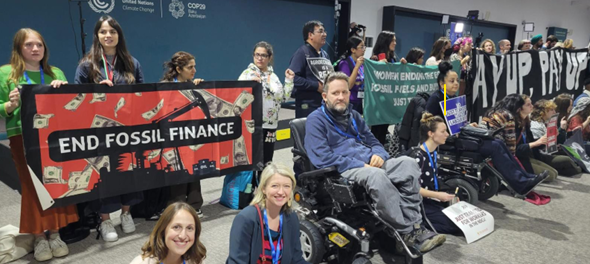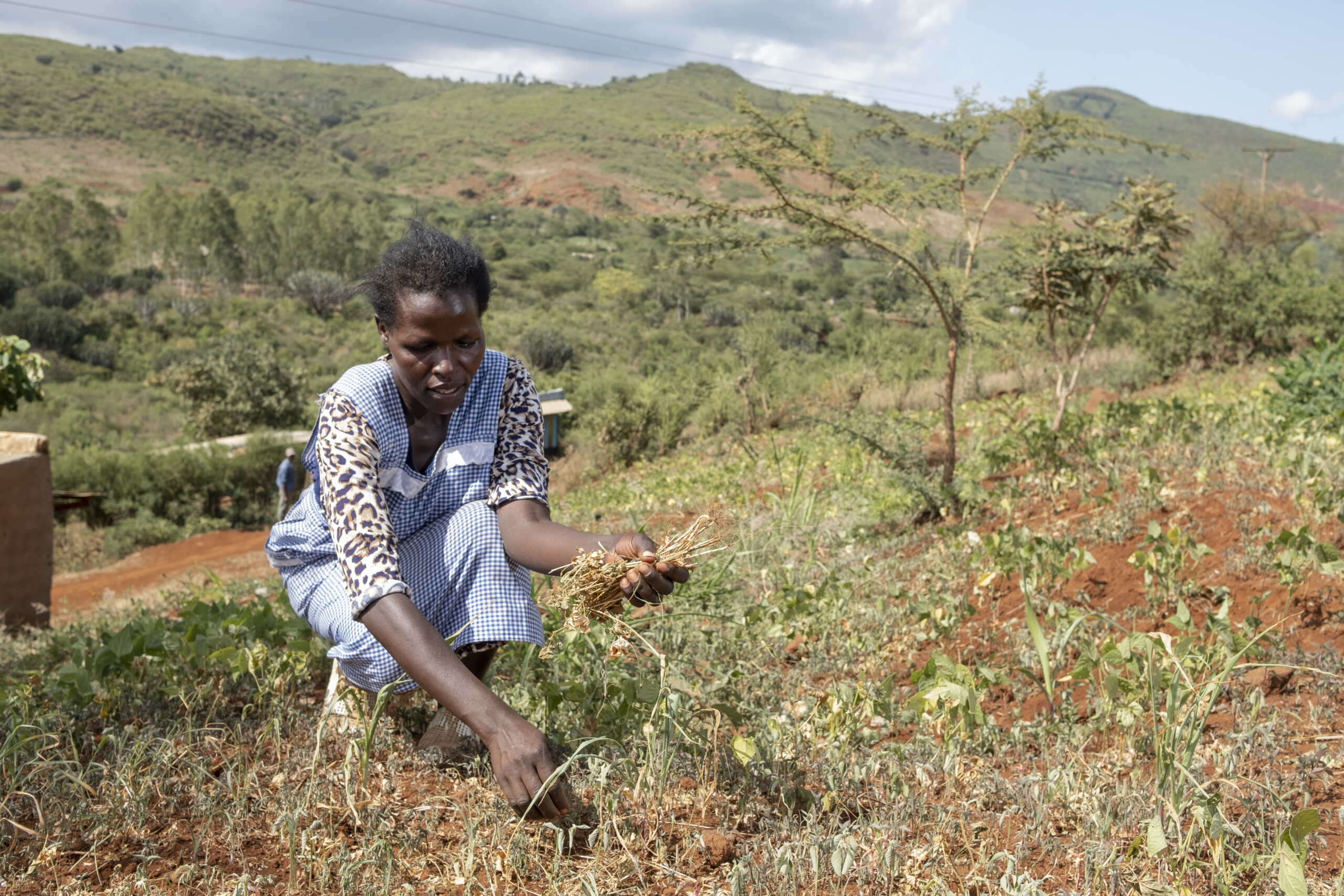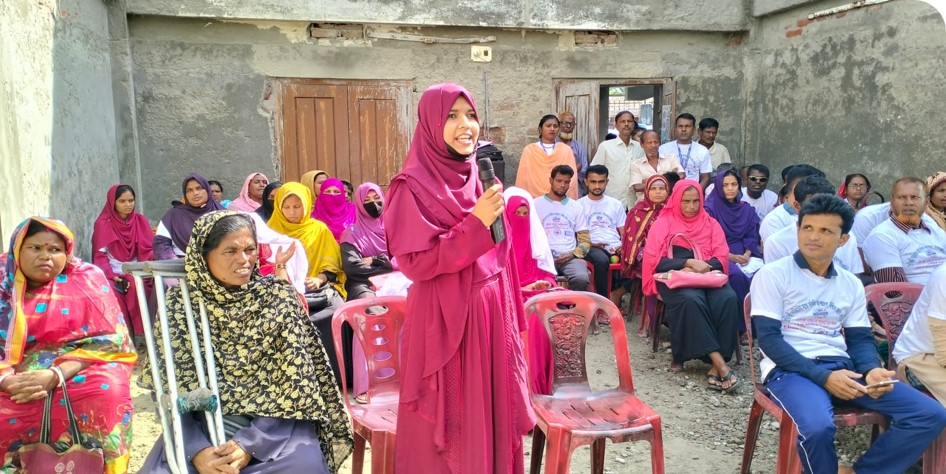Nepal OPD partner & journalists develop ethical media reporting guideline on suicide prevention
Climate-change, News | December 4, 2023
CBM Global Nepal partner KOSHISH, an organisation of persons with disabilities consisting of members with psychosocial disabilities, and the Federation of Nepalese Journalists collaborate to develop ethical media reporting guidelines on suicide prevention.
Suicide remains to be a serious public health problem. The World Health Organization (WHO) estimates that around 703,000 people take their life around the world every year. That is one person every 40 seconds globally, with 77% of cases happening in low- and middle-income countries.
According to the WHO, media professionals play an important role in shaping cultural narrative that improve the health of populations across the world. This includes responsible reporting about suicide, which is also a critical component in suicide prevention. The media can either help suicide prevention efforts or weaken them.
In an effort to tackle this, KOSHISH, a self-help organization, and the Federation of Nepalese Journalists (FNJ) have joined forces to develop ethical media reporting guidelines. The collaboration aims to ensure responsible and compassionate coverage of suicide-related stories in the media, with the overall goal of reducing stigma and promoting mental health awareness in Nepal.
“When discussing ethical matters with journalists in 2021, they initially showed reluctance to talk about it because they thought that the issue was not connected to them. Later, there was a growing negative impact of media reporting, continued project advocacy meetings with the Federation of Nepalese Journalists, Kaksi, and gatekeeper training for suicide prevention and the importance of ethical reporting of suicide incidents for Journalists, they realized the need for sensitivity. It made it easier to work collectively in ethical media reporting guidelines for suicide prevention. It is now clear that media persons have an effective role in disseminating suicide prevention messaging in the community and carry out joint advocacy.”- Sudip Ghimire, Project Coordinator, Suicide Prevention Project, KOSHISH
The guidelines emphasize the importance of accurate and evidence-based reporting, avoiding sensationalism, and respecting the privacy of individuals affected by suicide. Journalists will be encouraged to focus on promoting mental health awareness and providing information on available resources for those in need.
Furthermore, the collaboration aims to address the common misconceptions and stereotypes surrounding suicide. Through workshops and training, journalists will have the opportunity to engage with mental health experts and survivors, allowing them to gain insight into the experiences of individuals affected by suicide. This firsthand knowledge will enable journalists to convey stories empathetically and with a greater understanding of the complexities surrounding mental health.
One of the challenges journalists face in reporting on sensitive topics such as suicide is the lack of knowledge and resources. To address this issue, the collaboration will also involve producing resource materials, including a handbook on responsible reporting and a directory of mental health services available in Nepal. These resources will serve as a valuable tool for journalists, ensuring they have the necessary information and support to report on suicide prevention effectively.
The development of ethical media reporting guidelines on suicide prevention marks a significant step forward in addressing the sensitive issue of mental health in Nepal. By fostering responsible journalism practices, the collaboration among CBM Global Nepal, KOSHISH, and the FNJ will play a pivotal role in reducing stigma and encouraging open conversations surrounding mental health.
Nonetheless, it is important to note that responsible reporting on suicide is only one part of the solution. In conjunction with media guidelines, broader efforts are needed to address the underlying causes of suicide, such as improving access to mental health services and promoting mental wellness in communities.
“I am optimistic that the training provided following the Ethical media reporting guide on suicide prevention can transform journalists’ approach to addressing suicide prevention. Even in the midst of the ongoing drafting process, there has been a shift in how journalists write their news/articles, with a noticeable increase in positive headlines and a greater emphasis on an aware community, highlighting the impact, problem solving /solutions rather than means or problems. This experience working with KOSHISH indicates that notable change can be achieved when there is a clear purpose.”- Bimila Bnandari, Chairperson, Federation of Nepalese Journalist Kaski
Ultimately, this collaboration is creating hope through action, highlighting the power of partnership in tackling mental health issues. By working together, organizations and media professionals can contribute to a society that supports and nurtures the well-being of its members, ensuring that no one feels alone or stigmatized in their battle against mental health problems.
Learn more about our Community Mental Health work.
https://cbm-global.org/news/nepal-opd-partner-journalists-develop-ethical-media-reporting-guideline-on-suicide-prevention
Related News

One in Five Is Not Enough: The gains on Disability Inclusion have not gone far enough
One in Five Is Not Enough: The gains on...

COP30 Is a Turning Point for Disability-Inclusive Climate Action
As the world gathers in Belém, Brazil, from 10–21 November 2025 for COP30, the message from...

Achieving resilience for all requires funding disability inclusion in DRR
On International Day for Disaster Risk Reduction (DRR) 2025,...
